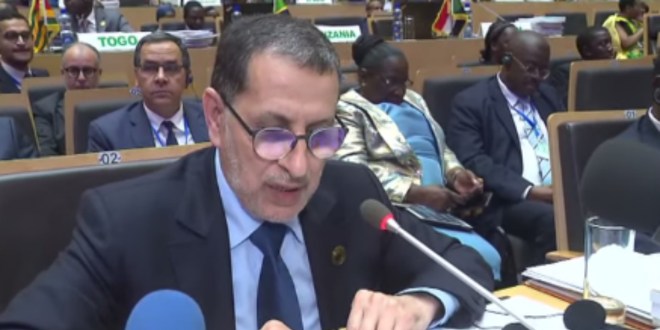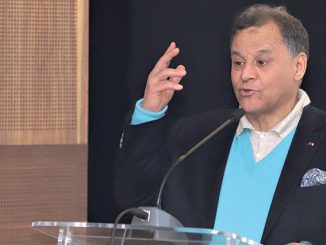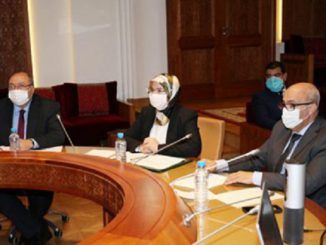
The Head of Government Saâd-Eddine El Othmani presented, on Monday at the 33rd Ordinary Summit of the African Union (AU), held in Addis Ababa, the report of King Mohammed VI on the follow-up of the establishment of the African Migration Observatory in Morocco.
Here are the key points of the report:
– Migration in Africa suffers from a false perception. It is often associated only with poverty, while other factors are at the origin of the phenomenon, such as climate change, which is a main motive for forced migration in Africa.
– Africa is the continent most affected by the emerging phenomenon of “climate migrants”. More than half of the 140 million potential migrants due to climate change – an estimated 86 million people – could be in sub-Saharan Africa by 2050.
– Migration is a factor for development. Migrants sent $529 billion to their countries of origin in 2018. The continent receives the least remittances with $46 billion, compared to $143 billion in East Asia and the Pacific, $131 billion in South Asia, $88 billion in Latin America and $59 billion in Europe and East Asia.
-International migration is not exclusively African. Only less than 14% of international migrants are African, i.e. less than 1 in 5 migrants is African.
– African migration is intracontinental. Less than 3% of the African population has migrated internationally. African trajectories are not South-North, but South-South. Since 2005, South-South migration has increased faster than South-North migration.
– The African Migration Observatory responds to a structural need for reliable migration data. Migration data are as limited as they are essential and is based on the fundamental idea that better governance of migration requires significant improvement in quantitative and qualitative data on migration.
– The African Migration Observatory is an institution of the African Union based around a triple function of understanding, anticipation and action.
– Thanks to the Observatory, which Morocco will host, Africa will have an advocacy and decision-making tool at its disposal. Solid and reliable migration data are essential tools for the development of relevant, effective and realistic policies.
– This regional mechanism for data collection, analysis, management and exchange provides Africa with a tool for development.
– As an African instrument for coordination, the Observatory implies a double coordination: at the national level between the different departments and at the continental level between the different Regional Economic Communities.
– The Observatory is also a tool for the implementation of the Marrakech Pact on Migration, which recognizes the need to maximize the overall benefits of migration, while taking into account the risks and challenges faced by migrants and communities in countries of origin, transit or destination.
– Morocco offers to host the 1st African Regional Forum for the implementation of the Marrakech Pact on December 10, 2020. It will serve as an African preparatory meeting for the 2022 International Migration Review Forum.
– Morocco is willing to share its national experience in migration management – recognized by the United Nations as a model that can inspire other countries – with other African countries that wish to do so.
– The measures taken by Morocco to eradicate the smuggling of migrants and the adoption of a legal framework to combat trafficking in persons were designed to reduce the situations of fragility and risk faced by migrants and to protect and respect their rights.
– Morocco’s migration policy constitutes a fundamental dimension of the Kingdom’s African policy, as it aims, among other things, to combat the major causes of migration.
– Through the integration of the migration-development nexus into its public policies, Morocco is indeed making a significant effort to promote the emergence, development and prosperity of the African continent as a whole.




Be the first to comment